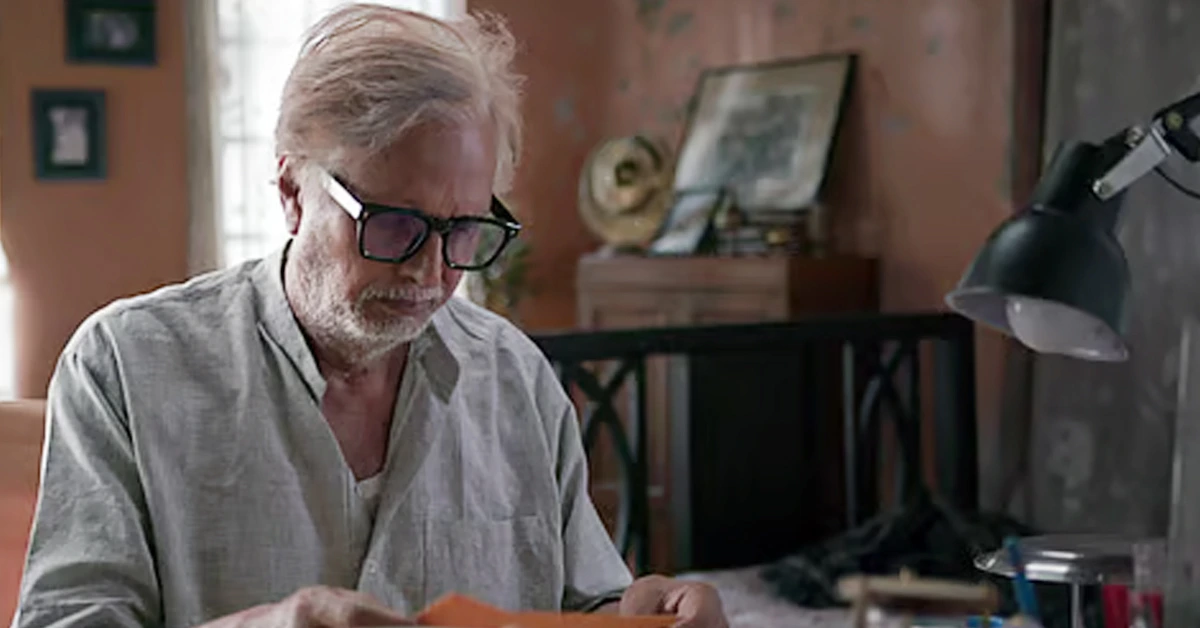
Arun Nath and Himjyoti Talukdar form an excellent team; it is the former’s performance combined with the latter’s conviction that makes Taarikh stand out—despite its occasional hits and misses
October 30, 2008 – a date etched into collective memory for over Assam's 3 crore population. On that day, 18 serial blasts shook the state, killing around 81 and injuring over 400. The tragedy left thousands of families broken, and it is this haunting backdrop that filmmaker Himjyoti Talukdar chooses for his latest Assamese film Taarikh.
Rather than recreating the violence, Talukdar explores its aftermath — the endless grief of those left behind.
Taarikh revolves around the life of a retired college professor, Durlov Dutta (Arun Nath), who has never come to terms with the death of his only son in the blast outside the CJM Court in Guwahati.
To Dutta, his son is not dead but “missing”. Thus begin his endless visits to police stations and repeated applications to successive chief ministers — starting with the late Tarun Gogoi in 2008, followed by Sarbananda Sonowal, and now to the current chief minister, Himanta Biswa Sarma — pleading for help in tracing him.
Years pass, governments change, but Dutta’s inner world remains frozen at that one tragic moment. While the world moves forward, he cannot.
As the narrative unfolds, we are introdcued to the character of Anuranan Hazarika (Boloram Das), who volunteers to bring Dutta out of his grief (post-traumatic stress disorder, PTSD) and he is helped by Dutta's caretakers Radha (Swagata Bharali) and her husband Basanta (Kula Kuldip), and a few others in this process.
Taarikh has a powerful premise, but its execution isn’t equally strong, as it seems to suffer from a “let us delve a bit deeper” syndrome.
When a film is based on such a sensitive and compelling subject, it is natural for the makers to go the extra mile—an approach that can sometimes create magic, but at other times feel unnecessary and stretched. Unfortunately, Talukdar’s second directorial venture after Calendar (2018) falls into the latter category.
Although the film is crafted with the purest of intent, its execution falters at several points, turning parts of it into a drag.
The backdrop of Taarikh is the October 30 blasts—a context that resonates instantly with anyone from Assam. However, it proves challenging for non-Assamese audiences, since none of the characters directly mention the tragedy, referring to it only vaguely as “that tragic incident.”
Instead of this needless dragging around the blasts, a direct acknowledgment at the very beginning could have forged a sharper emotional connect with the audience.
It is understandable that the makers wanted to preserve an air of mystery, but the flabby screenplay ultimately spoils the experience.
What feels conspicuously absent in Taarikh is the haunting resonance of October 30—be it through imagery, metaphor, or even the background score.
For a narrative rooted in such a devastating tragedy, some evocation of that lingering haunt seems essential, yet the film never quite manages to capture it."
The strongest pillar of Taarikh is Arun Nath—an actor par excellence who manages to offer something unique with each new film. His presence on screen is truly a visual delight.
From making us burst into laughter as 'Senior Salman Khan' in Sri Raghupati to taking us on an emotional roller-coaster of grief, loss, and desperation in Taarikh, he showcases remarkable range. His eyes did more than reveal a suppressed saga; they conveyed his grief and pain straight to us.
Arun Nath and Himjyoti Talukdar form an excellent team; it is the former’s performance combined with the latter’s conviction that makes Taarikh stand out—despite its occasional hits and misses.
Swagata Bharali, as Radha, looks gorgeous and infuses the character with life through her natural performance.
Kula Kuldip, in the role of Basanta, delivers well. Though his scope to explore the character is limited, he manages to do a decent job.
Boloram Das, portraying journalist Anuranan Hazarika—a man who is both a victim and a survivor of sorrow—gives a fair performance. On a personal note, however, I feel there was room to further develop the character’s dynamics.
The use of metaphors in unfolding the intricacies of characters and plot is crucial in a story like Taarikh. The director succeeds admirably in this regard, though only in parts.
Taarikh is certainly not a Mumbai Meri Jaan, yet what makes it stand out is the honesty in its storytelling.
The final shot, where Arun Nath's character Durlov Dutta gifts a packet of crayons to Radha's daughter, speaks volumes—it signifies that Dutta has finally shed the baggage he carried and that his life has moved forward beyond October 30.
Life, after all, never pauses; it neither waits for anyone nor stands still for anything.
For those who cherish cinema that stretches beyond the boundaries of conventional storytelling, Taarikh is a must-watch.
Yes, it has its share of flaws, but the weight of its subject and the care with which the film has been crafted make it worthy of deep appreciation.
ALSO READ | Shut Out At Home: The Relentless Struggle Of Assamese Cinema
Partha Prawal (Goswami) is a Guwahati-based journalist who loves to write about entertainment, sports, and social and civic issues among others. He is also the author of the book 'Autobiography Of A Paedophile'.